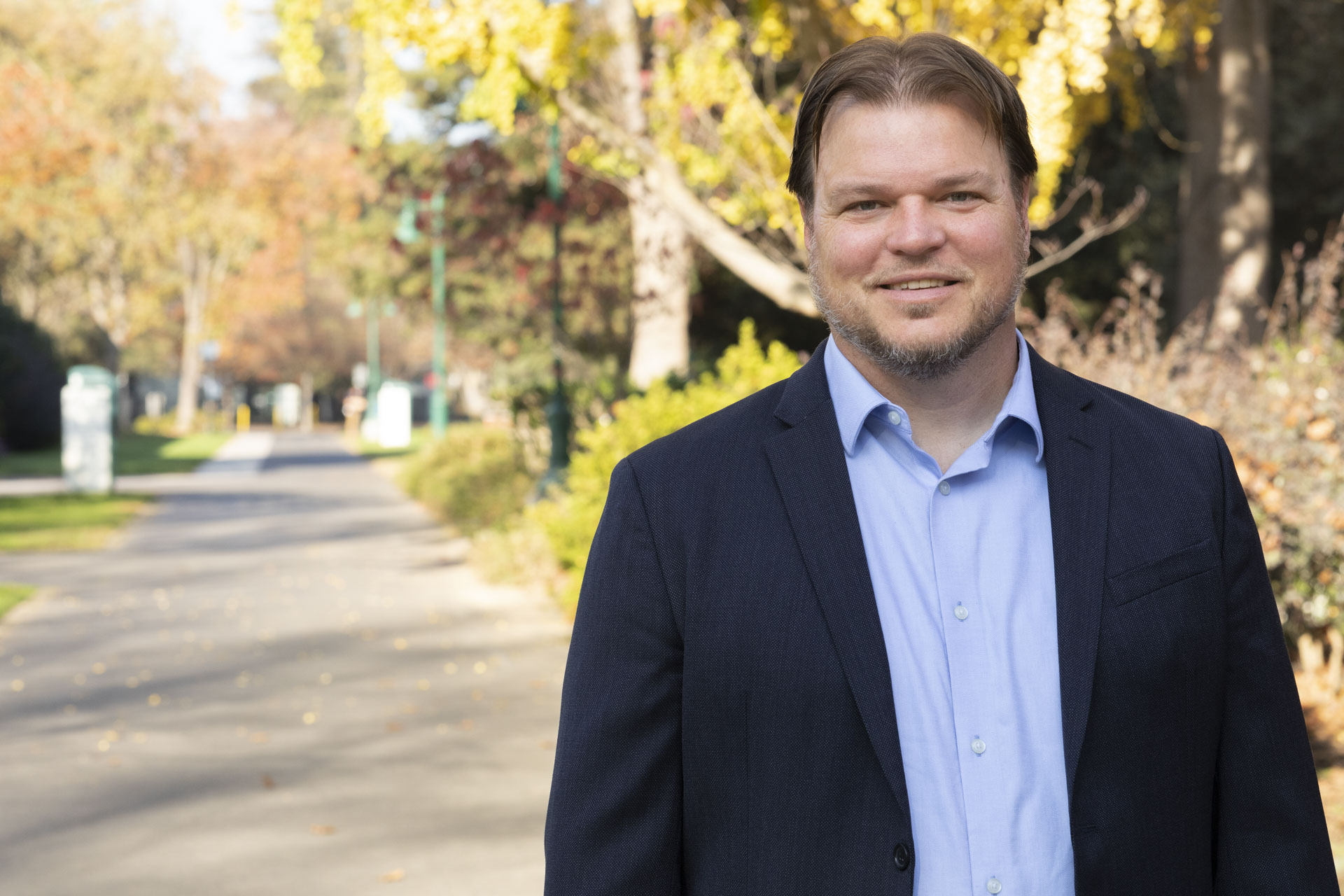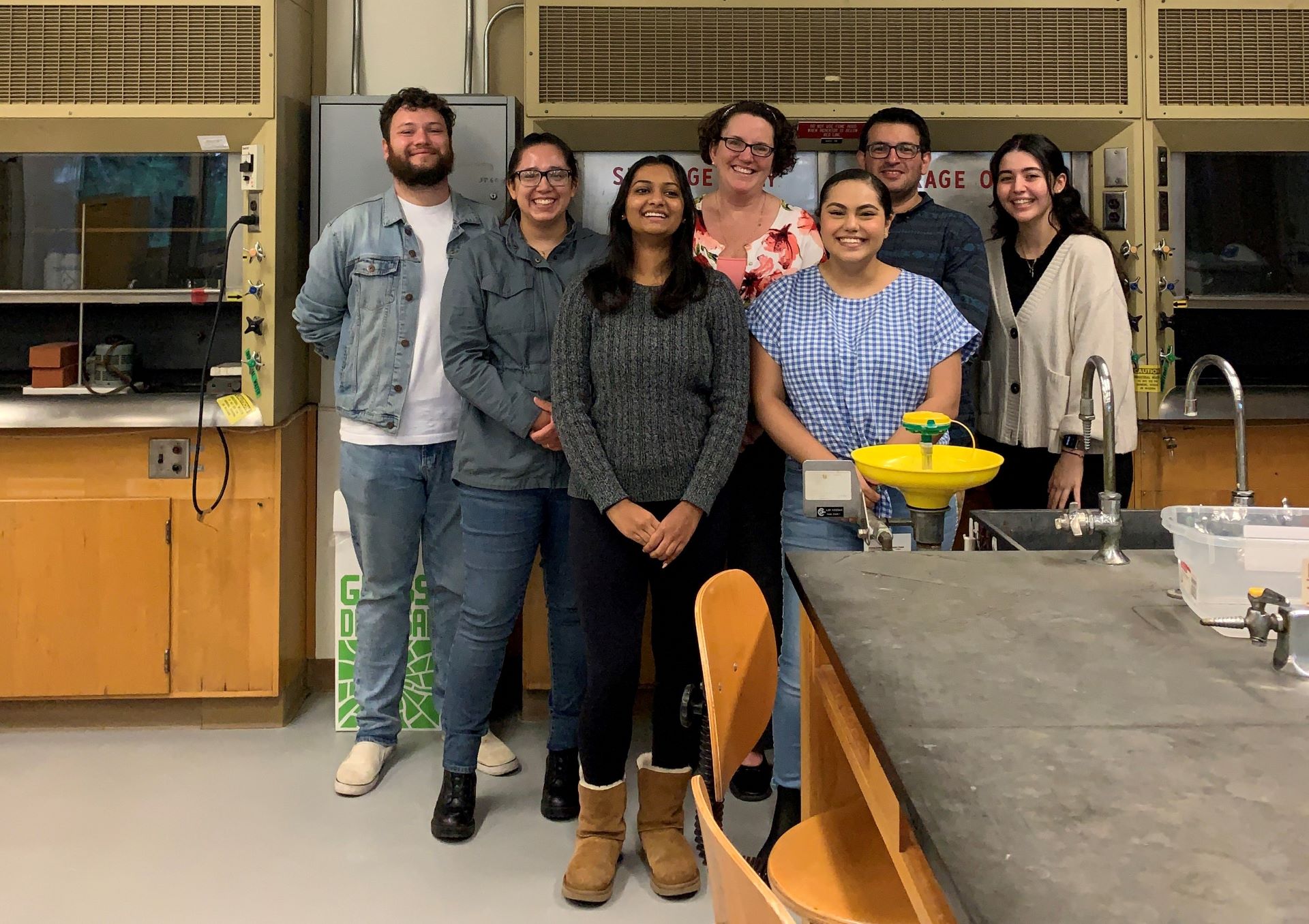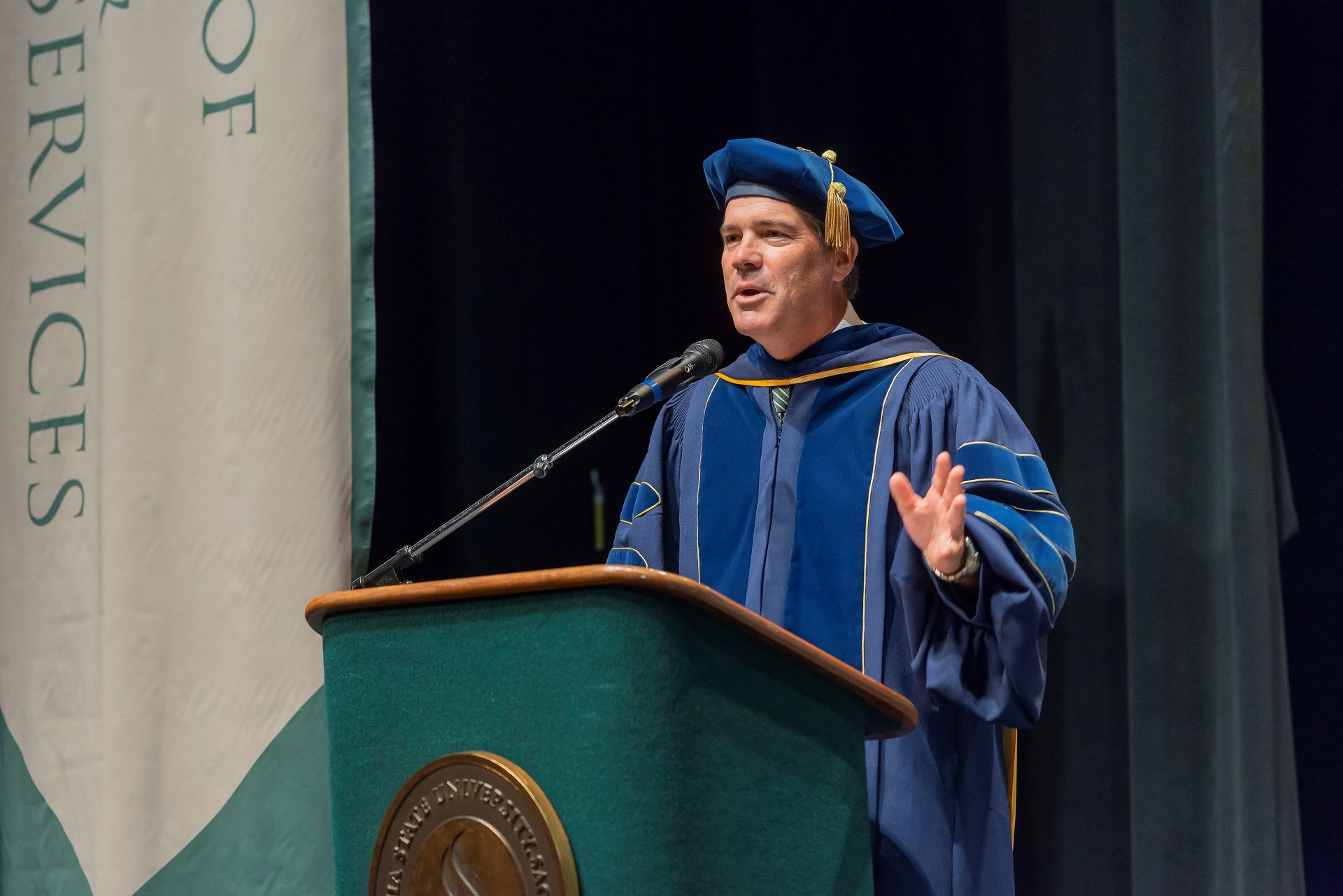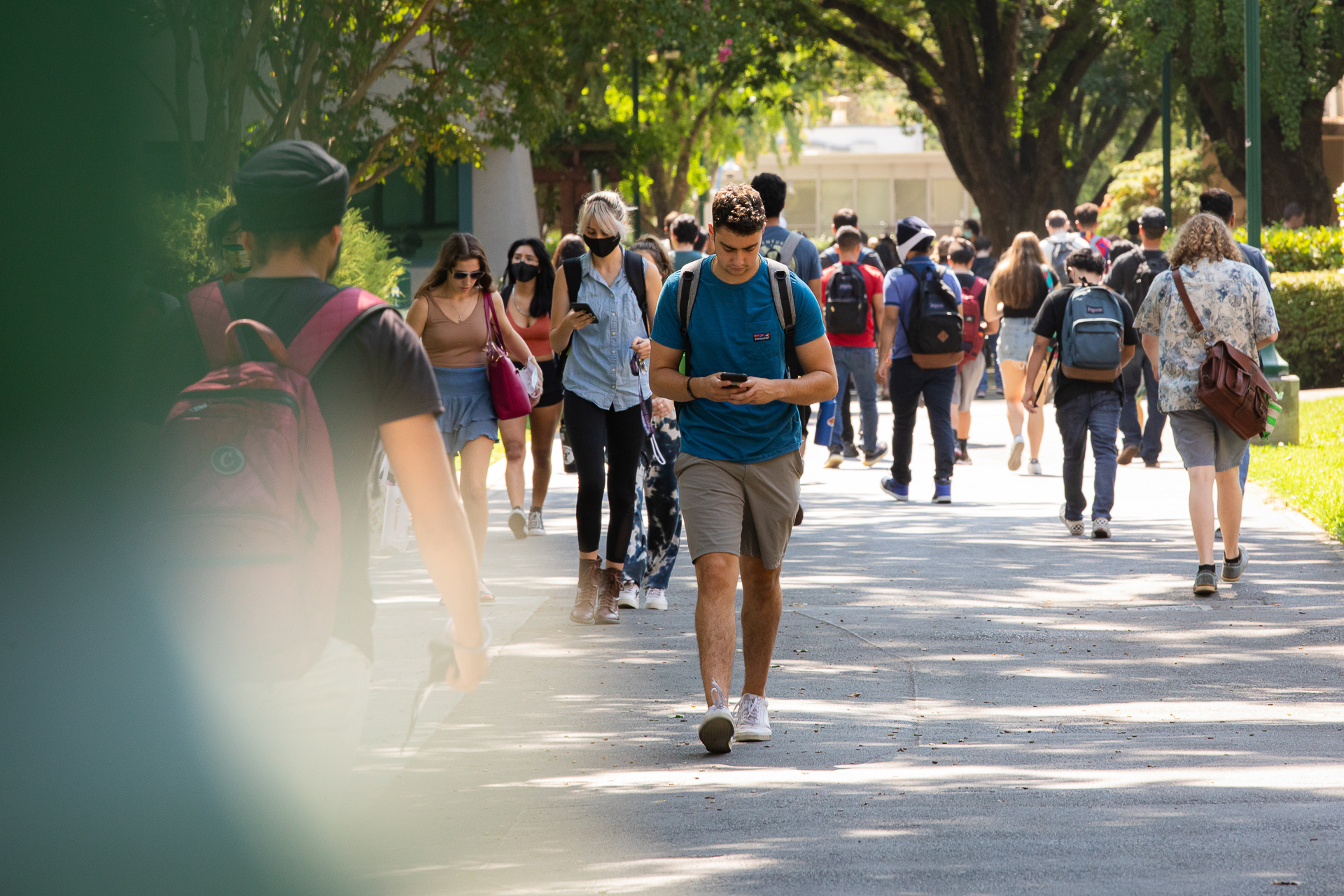Story Content
Educational Leadership professor works toward global education equity

December 15, 2021
Frank Adamson grew up attending public schools in inner-city Washington, D.C., and even in the shadows of the Capitol, he witnessed and experienced inequality from a very early age.
“I remember standing in the hallway when I was in second grade, around 8 years old, and thinking that ‘When I grow up, school is going to be different,’ ” Adamson said. “And here I am as an education professional 30-plus years later, doing what I can to improve it.”
Adamson is a professor in Sacramento State’s Doctorate in Educational Leadership (Ed.D.) program as well as an international scholar on educational equity. In that role, he helps advise the United Nations Educational, Scientific, and Cultural Organization (UNESCO) on the educational rights of children and conducts research into education systems, in particular the role of private actors in public education.
“Education is a prime driver for societal improvement, change, and evolution. That's where the passion comes from. Let’s get on it. This is our opportunity. We only get a certain amount of time in life to make an impact, and I think working for educational opportunity and equity is something worth doing.” - Frank Adamson
He has experienced the full range of the American education system, from public elementary and junior high schools where most of the children qualified for free lunch to the halls of one of the nation’s most elite private universities.
After earning his bachelor’s degree, Adamson initially worked as a teacher before quickly realizing it wasn’t where he felt he could make the biggest impact.
“I like to do the highest-leverage thing I can do, so the first thing I did was go into the classroom,” Adamson said. “I learned a ton from my students about their individual trajectories and lives, but I knew I couldn't make systemic change in a single classroom.”
A year later, he began conducting research for an educational think tank working with the U.S. Department of Education, “and I saw that in order to actually make change at that level, I was going to need an advanced degree.” At Stanford he earned his master’s in 2007 and his doctorate in 2010.
Adamson was working at Stanford in 2018 when his friend Julian Vasquez Heilig, then Sac State’s Ed.D. director, recruited him for an open faculty position. Wanting to get back into the classroom, he came to Sacramento, excited about the opportunity to both continue his research and work with doctoral students.
“Sac State is this unique opportunity for me in the sense of being able to do the important work of helping people become education leaders, and at the same time continuing my research agenda,” Adamson said. “It's an amazing opportunity. I'm very thankful for it.”
He mainly teaches classes in research methods, drawing upon his years of experience to introduce his students to real-world situations they will encounter once they graduate. For example, when teaching about education finance, Adamson helps students understand that budgets, more than just numbers on a spreadsheet, reflect an institution’s or organization’s values, principles, and priorities – all of which are subject to political pressure.
In addition to his work at Sac State, Adamson is highly involved in education nationally and internationally. In 2019, he was part of a team of experts in law, human rights, and education who adopted the Abidjan Principles, which outline legal obligations nations have to provide high-quality public education and regulate the role of private actors, such as non-governmental organizations.
Earlier this year, he coauthored a paper that examined five public education systems in low- and middle-income countries, demonstrating that public education can succeed even in developing nations. In December, he wrote a background paper for a UNESCO report to help governments ensure they are delivering on the human right to education.
Adamson said most countries are falling short, including the United States.
“We’re saying, ‘OK, you're not providing the high-quality education we all need. Here’s the obligation to do it and here are the examples of how you can do it.’
“We’re entering a phase where there’s really no excuse not to do it,” he said. “We want to be working at the international level to put pressure on governments.”
Adamson is aware of his privilege. “It’s a challenge to get from D.C. public schools to Stanford, but I don’t think it’s a surprise that I’m a white guy that did it,” he said. He works to give a platform to the educators, activists, and organizers on the ground who experience firsthand the decisions of global policymakers and work to improve the situation. For example, a set of videos accompanying the UNESCO report will feature Jitu Brown, who leads a nationwide grassroots organization that fights for equity and justice in schools.
“I can help frame it in terms of the statistics and the data and the research, but the human element is really the people that are the most impacted, and we need to center them at all levels,” Adamson said.
Despite the challenges he has witnessed during his research into education across the globe, Adamson said he is an optimist who believes humans can create a more diverse and inclusive society than currently exists.
“Education is a prime driver for societal improvement, change, and evolution,” he said. “That's where the passion comes from. Let’s get on it. This is our opportunity. We only get a certain amount of time in life to make an impact, and I think working for educational opportunity and equity is something worth doing.”
Media Resources
Faculty/Staff Resources
Looking for a Faculty Expert?
Contact University Communications
(916) 217-8366
communications@csus.edu


